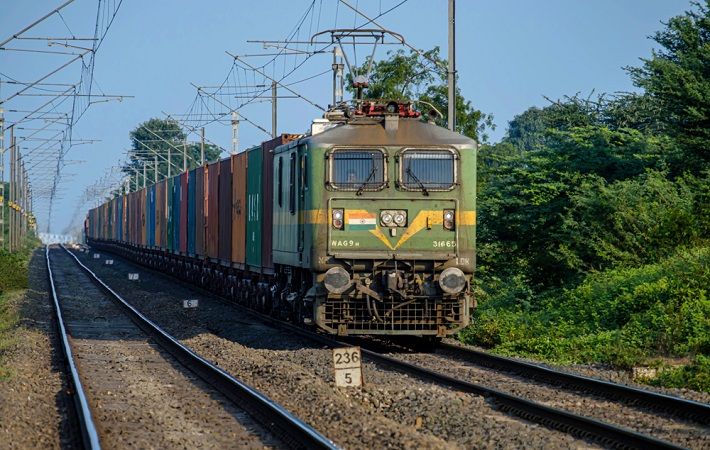
Last week, the first train reached Panipat carrying yarn, which not only cut down the transportation time, but also reduced freight charges by 30-35 per cent. According to railway officials, the first train left on April 2 and arrived at Panipat’s Deewana terminal after a 38-hour run.
The train connected two important textile hubs for higher productivity. Vapi-Silvassa is an important region for polyester yarn production, while Haryana’s textile and carpet manufacturing heartland Panipat is a large consumer of polyester yarn.
Earlier, yarn manufacturing units in Vapi and Silvassa were transporting raw materials by road, which took up to 72 hours. In addition to saving time, it is predicted that train transportation will reduce logistics costs by up to 30-35 percent.
Valsad railway station area manager Anu Tyagi said at the time of launch of the service, “Hoping for constant support from the textile industry, the railway is planning to make 22 trips from Vapi to Panipat in a month.”
Sanjiv Davar, an industry expert from Panipat, told Fibre2Fashion, “Panipat furnishing industry consumes 75 per cent polyester yarn out of total fresh yarn consumption. Therefore, Panipat is very much dependent on supplies from Vapi-Silvassa region of Gujarat. Normally, factories receive supplies through trucks which is costlier and more time-consuming mode of transportation. As per the industry estimate, consumer industries of Panipat have to bear a cost of ₹5 per kg if they transport yarn consignment through road transport. The freight cost will come down to around ₹3-3.5 per kg if they use railway’s transportation.”
Another industry expert, Suresh Durga, said that railway goods train service will reduce cost of transportation for consumer industries. “However, the yarn traders will have to pass on the benefit because of stiff competition. Consumer industries will be able to reduce cost of production and they will be able to compete in a better way in furnishing textile market. Furnishing textile items like carpet, curtain, bedsheet, pillow cover and sofa cover are supplied to domestic as well as to foreign market.”
It is believed to be smart move from Indian Railway to enter into textile sector for transportation service.
Earlier, the Indian textile industry did not feel comfortable for transportation of yarn through railways because of sensitivity of the product. Industry sources said that railway was not able to handle such high value goods which need more care while transportation. But now, the Indian Railways has made special arrangement for transporting yarn.
Some people from the industry said that time will test the ability of railways, if it succeeds to transport yarn consignment, textile sector will use the service in a big way.
ALCHEMPro News Desk (KUL)
Receive daily prices and market insights straight to your inbox. Subscribe to AlchemPro Weekly!